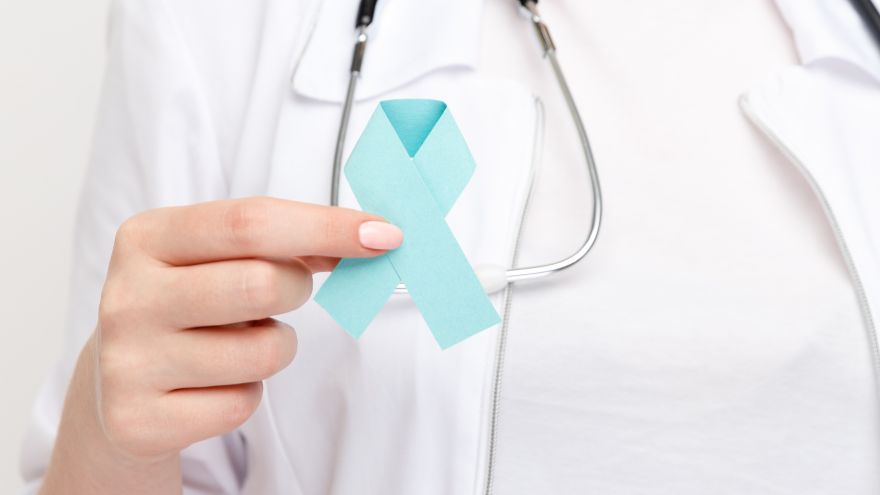Search
-
Jakob’s Journey at Renown Children’s Hospital
In August 2016, six-year-old Jakob was admitted to Renown Children's Hospital with what seemed like a common ear infection. Jakob's condition quickly progressed, and he started experiencing neurological symptoms such as difficulty speaking and a full-body shutdown. Doctors, neurologists and specialists from Renown worked with doctors from Stanford, where he was ultimately diagnosed with Bickerstaff brainstem encephalitis (BBE). BBE is a rare, autoimmune response that attacks the nerves in the body due to an acute illness such as a cold, flu or, in Jakob's case, an ear infection. Jakob could not breathe or eat and experienced paralysis on the side of his face, throat, stomach, bowels, lungs and legs. In addition, he started to rapidly lose weight as well as body function. Jakob lost half his body weight which resulted in the need for a Gastrostomy tube. This device is placed surgically and gives direct access to the stomach to give the child the nutrition needed. He also needed occupational therapy, and after three and a half months of ICU respiratory therapy, surgeries and treatments, he was released home to regain his strength. Forever Grateful Anica, Jakob's mom, said, "If it were not for the quick response and unconditional support and compassion from the team at Renown, Jakob would not be here today." Jakob's family is forever grateful to the staff, community and expertise at Renown for their unwavering commitment to their son and family during their most trying time in life. "When I met Jakob on the first day of his illness, so much was unknown. My team and I were worried, as his symptoms were very unusual. His rapid deterioration, after being a perfectly healthy child, was clearly terrifying for his parents. Handing over a child's care to a team of strangers is one of the scariest things that can happen to parents,” said Dr. Kris Deeter, Physician in Chief at Renown Children’s Hospital. “However, Anica and Jeremiah were also very clear that they did not want Jakob transferred somewhere else. So, we used all our resources to care for him, arrive at a diagnosis, and start aggressive therapies. They listened to every word we said, educated themselves, and became partners in Jakob's care. We all became part of Team Jakob, and soon, he proved to us just how strong he was." Today, Jakob is 13 years old and thriving in every aspect of his life. He is currently on the honor roll in school and finds joy in his newfound passion for the violin. He loves spending his free time learning about mixing music, making new friends and traveling to different parts of the country. This summer, he will travel to Europe to explore his passion for culture. The family says, "We owe it all to the family and staff at Renown."
Read More About Jakob’s Journey at Renown Children’s Hospital
-
Learn How to Manage Lymphedema
Katherine Bunker, Physical Therapist and Certified Lymphedema Therapist (PT, DPT, CLT) at Renown, discusses how patients can manage lymphedema with changes to daily routines along with diet and exercise. Lymphedema is a condition that affects millions of people around the world. It is a chronic and progressive disorder that results in swelling of the arms, legs, or other parts of the body due to an accumulation of lymph fluid. Lymphedema can occur because of cancer treatments, surgery, or other medical conditions. Managing Lymphedema Treatments to help reduce symptoms such as pain, swelling and discomfort associated with lymphedema can include compression garments, exercise, skin care, manual lymphatic drainage and pneumatic compression. The goal is to avoid triggering the onset of lymphedema. Lymphedema can present itself immediately after surgery or radiation. It can appear months later or even years later. There are many factors that influence the development of lymphedema which is why prevention is so important. If you have had injury or disruption to your lymphatic system, then: Avoid injuries to the skin near the affected area. For example: wearing gloves during gardening, using bug spray to ward off mosquitos, covering your limbs while playing with pets, keeping nails clean and avoiding cutting too close to cuticle, utilizing electric razors at the armpit (instead of a traditional razor)., Avoid blood pressure readings to the affected limb or request blood pressure to be taken manually, not by a machine. Avoid heat like saunas, hot tubs, sunburns, hot packs, and even massages. Avoid tight jewelry like rings or bracelets, which can be too tight.
-
Life after Lymphedema Diagnosis: What to Expect
Managing lymphedema effectively is essential for enhancing the quality of life for individuals affected by this condition. Katherine Bunker, a Physical Therapist and Certified Lymphedema Therapist (PT, DPT, CLT) at Renown, has expertise in this area and her insights offer valuable strategies for managing lymphedema. Lymphedema is a chronic condition characterized by swelling in one or more limbs due to a blockage in the lymphatic system. This condition can result from cancer treatments, surgery, infection, or can sometimes be congenital. While it can be challenging to live with lymphedema, understanding the condition and adopting specific lifestyle changes and strategies can significantly improve the quality of life. Understanding Lymphedema Educating yourself about lymphedema is crucial. Understanding the causes, symptoms, and potential complications can provide you with the tools to manage the condition proactively. Lymphedema can lead to discomfort, decreased mobility, and in severe cases, infections such as cellulitis. Therefore, recognizing the early signs and knowing when to seek medical advice is essential. Medical Management Consulting with healthcare professionals who specialize in lymphedema is critical. A physiotherapist or occupational therapist trained in lymphedema management can tailor a treatment plan for you that can include the following: Compression Therapy - Wearing prescribed compression garments can help move the lymph fluid and reduce swelling. It’s essential to get fitted by a professional and understand how to use these garments correctly. Manual Lymphatic Drainage (MLD) a gentle massage technique that encourages the movement of lymph fluid out of the affected limb. It’s typically performed by a trained therapist but ask about self-massage techniques you can do at home.
Read More About Life after Lymphedema Diagnosis: What to Expect


